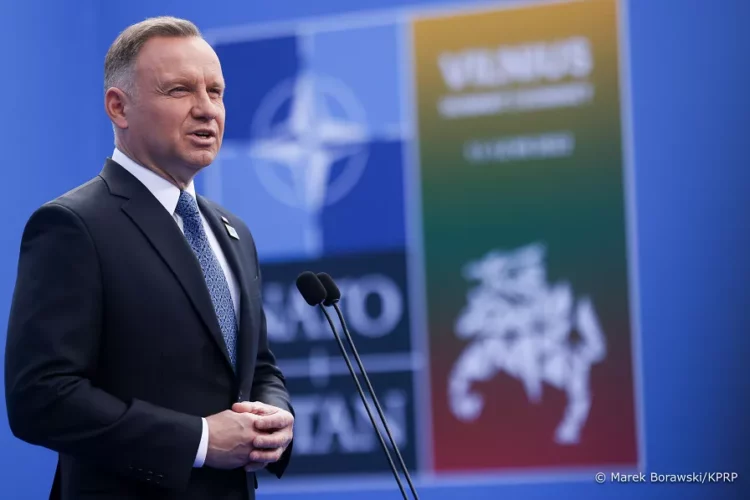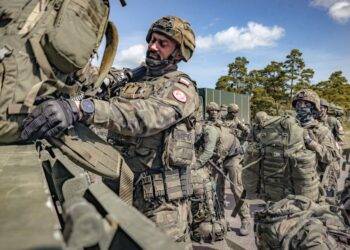In a move that escalates the defense stakes in Eastern Europe, Poland has expressed its readiness to host nuclear weapons from NATO allies, a direct counter to Russia’s recent deployment of nuclear capabilities in Belarus. This declaration by Polish President Andrzej Duda reflects a significant pivot in NATO’s strategic defense alignment on the eastern flank, amidst growing regional tensions.
- More News from Poland on our Homepage.
- Sign up to our Newsletter
President Duda’s announcement comes on the heels of Russia’s strategic placement of nuclear weapons in Belarus, as confirmed by Belarusian President Alexander Lukashenko in December. The Polish response underscores a commitment to strengthening NATO’s defense posture in response to perceived aggressive moves by Russia. Duda stated in an interview with the Fakt tabloid, “If there were a decision by our allies to deploy nuclear weapons within the nuclear sharing also on our territory in order to strengthen the security of NATO’s eastern flank, we are ready.”
Government Deliberations and International Reactions:
While President Duda has openly supported the nuclear hosting proposal, Prime Minister Donald Tusk has advised caution, emphasizing the need for thorough preparation and consensus within the government and NATO allies. Tusk expressed a desire for a well-prepared initiative, underscoring the gravity of nuclear defense strategies and the importance of absolute certainty in such decisions. Meanwhile, the Kremlin has warned that any deployment of US nuclear weapons in Poland would trigger necessary countermeasures to ensure Russia’s security, signaling potential escalation in military tensions.
- Follow us on X (Twitter) to stay up to date with News from Poland.
The possibility of deploying nuclear weapons in Poland is part of NATO’s broader nuclear sharing program, which currently involves countries like Belgium, Germany, Italy, the Netherlands, and Turkey, hosting U.S. nuclear weapons with Washington retaining control. This strategic framework aims to deter aggression by ensuring that NATO’s nuclear capabilities are distributed and that allied nations share in the collective defense responsibility. Poland’s potential inclusion in this program marks a critical juncture in the alliance’s strategy, particularly as NATO continues to adapt to the evolving security dynamics caused by Russian military actions in Ukraine and along the NATO borders.


















